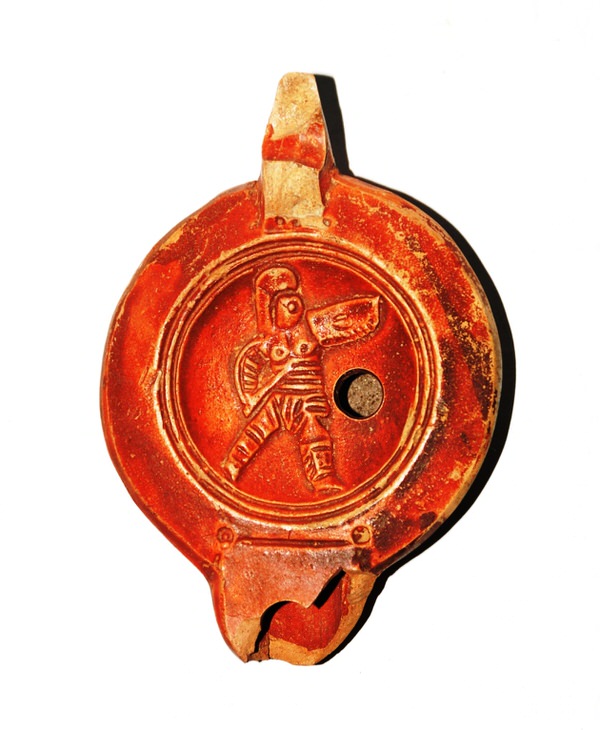Roman lamp
The nineteenth century damage to the Tharros necropolises in the search for treasure, especially of Punic gold, caused the dispersion of so many funeral items, some of which ended up in private and public collections.The Roman necropolises, while less rich in items, suffered the same fate.
This intact lamp certainly comes from a Tharros tomb (figs. 1-2).


This particular type of lip, which is wider at the tip and joins to the main body with two small scrolls, making it a Deneauve IVa, allows us to place the lamp in the first half of the 1st century A.D., although we have no other contextual data from other funeral items in the tomb.
A gladiator is painted on the disc, protecting himself with a rectangular shield and holding a small curved sword in his right hand. Gladiators were often painted on lamps, as can be seen in this other example (figs. 3-4) also from a Tharros tomb, which shows a gladiator wearing a kind of body armour. This lamp can be dated back to the 1st century A.D. and on the body it carries the stamp of the maker AUFI FRON (to be read as Aufi(dius) Fron(imus), most probably located in Africa.
.


Bibliografia
- J. DENEAUVE, Lampes de Carthage, Paris 1969.
- G. SOTGIU, Iscrizioni latine della Sardegna. II, 1, Padova 1968.

 VR
VR